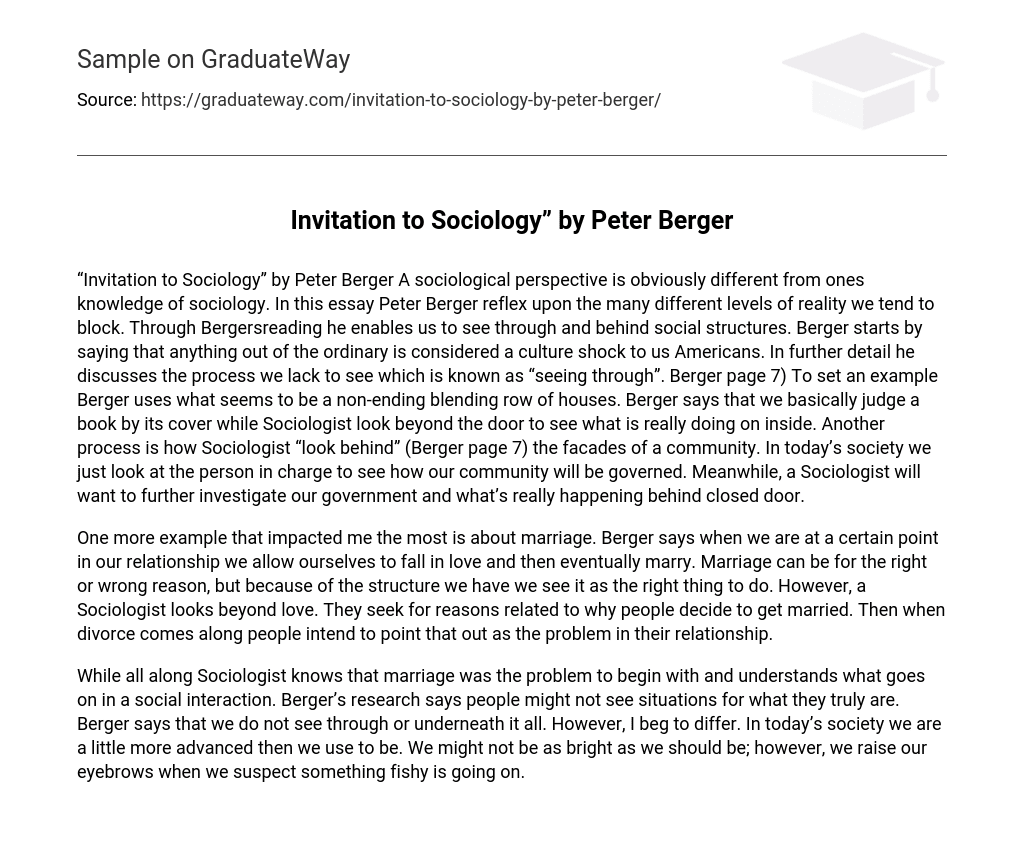“In Invitation to Sociology”, Peter Berger explores the disparity between having knowledge of sociology and adopting a sociological perspective. Berger delves into the various levels of reality that we tend to overlook. Through his writing, Berger unveils the hidden truths behind social structures. He begins by highlighting how anything that deviates from the norm is considered a culture shock to Americans. Expanding on this, he discusses the process of “seeing through” that we often fail to engage in (Berger page 7). To illustrate this point, Berger presents a continuous row of houses as an example. While we tend to judge based on superficial appearances, sociologists look beyond the surface to uncover what is truly happening inside. Another aspect of this perspective is the act of “looking behind” (Berger page 7) the community facades. In our society, we typically rely on the person in charge to understand how our community functions. However, sociologists seek to go beyond this superficial view and thoroughly investigate our government and its undisclosed workings.
Marriage is a significant example that had a profound impact on me. According to Berger, at a certain stage in our relationship, we open ourselves up to love and ultimately decide to marry. Our society’s norms lead us to perceive marriage as the suitable choice, regardless of whether it is based on valid or invalid reasons. Nevertheless, Sociologists adopt a broader perspective and aim to comprehend the underlying factors that influence people’s choice to wed. Consequently, when divorce happens, individuals often attribute it to issues within their relationship.
Sociologists recognize that marriage is the root cause of problems and possess an understanding of social interactions. According to Berger’s research, people often fail to perceive situations accurately, unable to see beyond the surface. Nevertheless, I hold a different perspective. In our modern society, we have progressed to some extent. Although we may not be as perceptive as we ought to be, we do become suspicious when something appears questionable.





